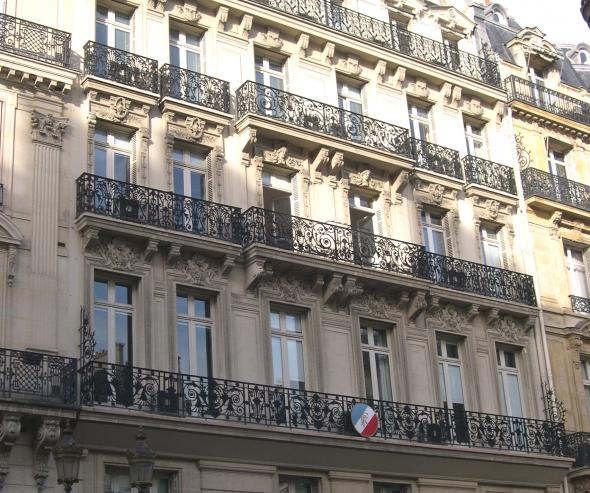The ordinance transposing the ECN+ Directive has been published

The Autorité de la concurrence welcomes the adoption of this text, which contains major advances for the modernisation of competition law.
Background
Ordinance No 2021-649 of 26 May 2021 on the transposition of Directive (EU) 2019/1 of the European Parliament and of the Council of 11 December 2018 to empower the competition authorities of the Member States to be more effective enforcers and to ensure the proper functioning of the internal market, called the ECN+ Directive, was adopted in the Council of Ministers on 26 May 2021.
This text is the last step in the process of modernising competition law and the tools available to the Autorité: after the strengthening of European merger control with respect to "below threshold" transactions (with the new possibilities to refer "below threshold" merger transactions to the European Commission, under Article 22 of the 2004 European Regulation) announced by Margrethe Vestager in November 2020, then the streamlining of the "national law" procedures of the Autorité de la concurrence, resulting directly from the Law of 3 December 2020 on various provisions of adaptation to European Union law in economic and financial matters ("DDADUE Law"), the transposition of the ECN+ Directive by this ordinance completes the modernisation of the Autorité's tools. This new legal framework will give the Autorité the means to apply competition law more effectively and more quickly, and provide it with powerful new tools adapted to the challenges, particularly those raised by the development of large platforms.
This text, which is the result of the authorisation granted by the Law of 3 December 2020 on various provisions for adapting to European Union law in economic and financial matters ("DDADUE Law") with a view to transposing the ECN+ Directive by ordinance, introduces new powers for the Autorité de la concurrence and its counterparts in the other Member States of the European Union, to allow greater efficiency and uniformity in the application of competition rules within the internal market.
Major advances in the ordinance for the Autorité
The ECN+ Directive, which amends the provisions of the French Commercial Code (Code de commerce) on a number of points, has now been transposed into national law and contains several major advances for the Autorité de la concurrence.
- The Autorité will now have the power to set its own priorities and reject complaints that do not correspond to them. This ability, known as "discretionary jurisdiction", will allow it to better allocate its resources, which can be fully devoted to the rapid resolution of the most important cases (including complex cases involving large digital platforms or algorithmic processes).
- The Autorité will now have the possibility of filing an action on its own initiative to impose interim measures, no longer simply following a request made by a company, incidentally to an application on the merits. The Autorité welcomes this new opportunity to act without delay, on its own initiative, when it becomes aware of conduct that could harm competition, particularly in sectors where the positions of the stakeholders are changing very rapidly.
- The possibility for the Autorité to issue structural injunctions (e.g. the divestiture of a subsidiary or business) as well as behavioural injunctions, in the context of jurisdiction, is fully established, thus aligning the powers of the Autorité de la concurrence with those of the European Commission.
- The leniency procedure, whereby a company which discloses a serious infringement of the competition rules to the Autorité may apply for an exemption from the financial penalty incurred, is now fully enshrined in positive law. These new provisions largely take over the terms of the leniency programme previously implemented by the Autorité in a soft law context and harmonise this procedure at European level. The incentive for companies to expose possible secret cartels is further strengthened by the fact that immunity from, or a reduction in, criminal penalties may also be conditionally obtained by natural persons belonging to the staff of the company which first submitted a leniency application.
- The possibility for the Autorité to access the data of companies under investigation, wherever they are stored, and to access encryption keys, is fully enshrined, so as to preserve the effectiveness of the investigations currently being conducted. In addition, the new provisions subject the Autorité's proceedings to the "freedom of evidence" standard, applicable in criminal matters, which will broaden the scope of admissible evidence.
- The system of financial penalties is now more of a deterrent and better harmonised at European level. Organisations - now "associations of undertakings" - are no longer subject to a specific penalty regime for infringement of the competition rules (they previously benefited from a penalty ceiling of 3 million euros), but are now subject to a much higher ceiling, equal to 10% of the total turnover of the companies belonging to the association. This will apply in particular to professional trade associations and professional bodies.
- The criteria for determining the amount of the penalties will now be unified and aligned with those used by the European Commission, based solely on the traditional notions of the seriousness and duration of the infringement, with the reference previously made in the law to the notion of "damage to the economy" being removed.
- Lastly, European cooperation between national competition authorities has been strengthened (mutual information obligations between the authorities of the European Competition Network, extension of assistance between authorities, in particular for inspections, notification of procedural documents and recovery of penalties).
Ordinance No 2021-649 of 26 May 2021
Contact(s)
